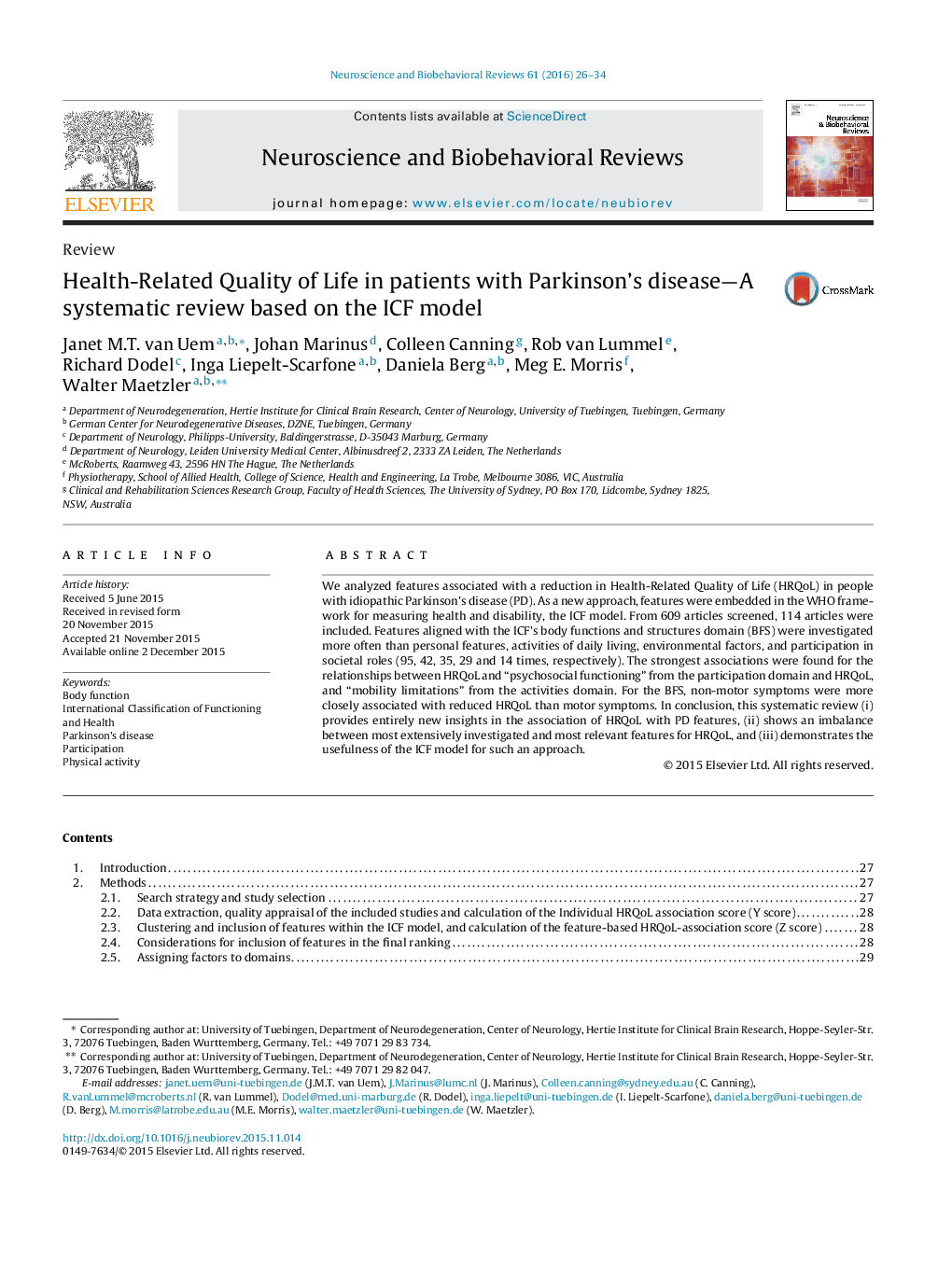| Article ID | Journal | Published Year | Pages | File Type |
|---|---|---|---|---|
| 937412 | Neuroscience & Biobehavioral Reviews | 2016 | 9 Pages |
•The WHO ICF model is useful to evaluate HRQoL in Parkinson's disease.•The most intensely studied features are not the most relevant to reduce HRQoL.•Daily life-relevant features are more important to HRQoL than “doctor's usual choice.”.•Non-motor symptoms affect HRQoL more negatively that motor symptoms.
We analyzed features associated with a reduction in Health-Related Quality of Life (HRQoL) in people with idiopathic Parkinson's disease (PD). As a new approach, features were embedded in the WHO framework for measuring health and disability, the ICF model. From 609 articles screened, 114 articles were included. Features aligned with the ICF's body functions and structures domain (BFS) were investigated more often than personal features, activities of daily living, environmental factors, and participation in societal roles (95, 42, 35, 29 and 14 times, respectively). The strongest associations were found for the relationships between HRQoL and “psychosocial functioning” from the participation domain and HRQoL, and “mobility limitations” from the activities domain. For the BFS, non-motor symptoms were more closely associated with reduced HRQoL than motor symptoms. In conclusion, this systematic review (i) provides entirely new insights in the association of HRQoL with PD features, (ii) shows an imbalance between most extensively investigated and most relevant features for HRQoL, and (iii) demonstrates the usefulness of the ICF model for such an approach.
